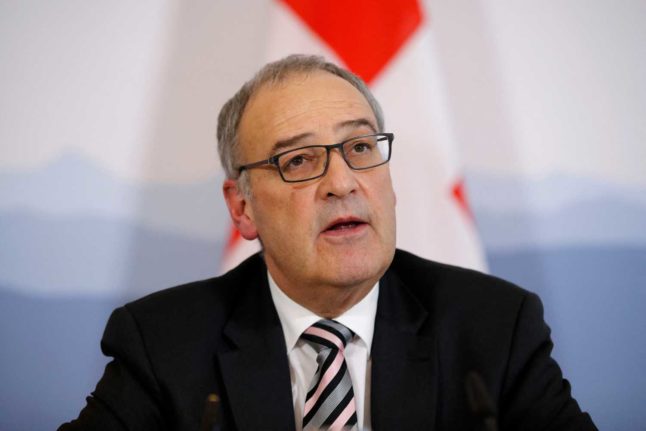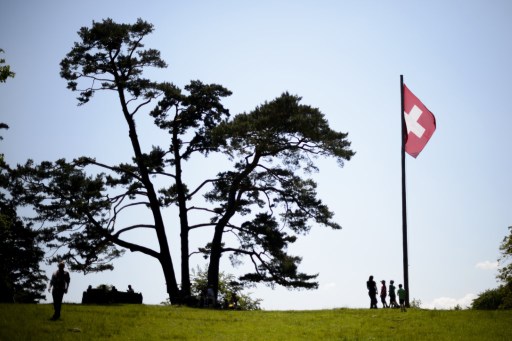1. It’s a Confederation
Switzerland is a federal state comprised of 26 different cantons which have chosen to enter into an alliance. It began when the cantons of Uri, Schwyz and Unterwalden agreed to unite on August 1st 1291 at the Rütli meadow on Lake Lucerne, an event celebrated every year on Swiss National Day.
The Confederation continued to grow throughout the centuries until its current borders were set in 1815. The federal constitution was created in 1848, founding the federal parliament and giving central government certain powers.
2. There are three levels of government
The federal system means power is shared between the federal government, the cantonal governments and the country’s more than 2,000 communes.
The federal government tackles policy including defence, national roads, energy and external relations.
The cantons have their own government, laws, courts and constitution but must not contradict the federal constitution. Some of the areas in which they dictate their own policy include education, healthcare and cultural affairs.
The communes are mostly run by communal assemblies and have their own responsibilities including local planning, social welfare and schools.
3. There are two houses of the federal parliament
Federal laws are created by parliament, which comprises two chambers whose members are elected by the Swiss public every four years.
The lower house, the National Council, represents the Swiss population as a whole and comprises 200 MPs. The upper house, the Council of States or senate, represents the cantons and has 46 senators – each canton has two representatives apart from six ‘half’ cantons that were formerly joined with another, for example Basel-City and Basel-Country, which have one each.
Both chambers have the same powers. Together, they are known as the Federal Assembly, which is the highest publicly-elected authority in the land.
4. The government is elected by parliament, not the people
The government executive, which implements the laws decided by parliament, is called the Federal Council. Each of its seven federal councillors is head of one of the government’s departments or ministries and is elected for a four-year term.
Unlike in many other countries, the members of the Federal Council are not elected by the Swiss people but by the Federal Assembly. Parliament also elects the Federal Chancellor, the Attorney General and the judges of the federal supreme court and courts of first instance.
5. Switzerland’s president isn’t elected by the people

Since parliament elects the government, it also elects the Swiss president from within the seven federal councillors. He or she serves for one year only and doesn’t have any more powers than his or her peers but is considered ‘the first among equals’. The president chairs meetings of the Federal Council and has special duties to represent Switzerland when necessary.
6. Only Swiss nationals may vote at federal level
Any Swiss citizen over 18 may vote in parliamentary elections and referendums. While men got the right to vote in 1848, women were only granted suffrage at federal level in 1971, with one canton holding out on granting women cantonal voting rights until 1991.
Foreign nationals without Swiss citizenship are not allowed to vote at federal level however long they’ve been in the country, but some cantons and communes allow them to vote on local matters. Swiss citizens abroad may vote in Swiss parliamentary elections.
7. Voting systems vary
MPs are voted into the National Council under nationwide rules that specify proportional representation. However rules for Council of States elections vary between cantons, with most – but not all – favouring the first-past-the-post system.
Elections are mostly held by secret ballot, apart from in Appenzell Innerrhoden where the people vote for their Council of States representative by a show of hands in a traditional gathering organized by the so-called Landsgemeinde, or people’s assembly.
The major Swiss political parties in parliament are the Swiss People’s Party (UDC/SVP), the Social Democrats (PS/SP), the Liberal-Radicals (PLR/FDP) and the Christian Democrats (PDC/CVP).
Currently no single party has a majority in parliament, however in 2015’s parliamentary elections the right-wing, populist SVP won a record 65 out of 200 seats in the lower house, boosting its MPs by 11 and becoming the National Council’s largest party.
8. Lawmaking is a lengthy process
Parliament sits for four three-week sessions a year, in March, June, September and December. Draft laws are debated up to three times by each chamber, with issues batting back and forth between them and compromises having to be made, until they come to an agreement.
But even then that doesn’t mean a law can necessarily come into force, and that’s because…
9. It’s a direct democracy
Famously, the Swiss people play a vital role in how the country is run by having their say in a series of federal and cantonal referendums held four times a year.
Introduced in 1874, the system requires any amendment to the constitution to be put before the people in a referendum. To pass it requires a double majority – meaning the consent of the majority of the people and a majority of the cantons.
The system means the government sometimes has a hard time passing legislation, such as the failure at referendum of a recent major tax reform.
10. Members of the public can launch a referendum

Posters for the 2009 anti-minarets popular initiative, backed by the SVP. Photo: Fabrice Coffrini/AFP
Any Swiss citizen may request an optional referendum to contest a new or revised law. To do so they must gather 50,000 signatures within 100 days. If the referendum goes ahead, the new law is passed or rejected by a simple majority.
Since 1891 citizens may also demand a change to the constitution via referendum by launching a popular initiative. It must be launched by a group of at least seven citizens, and must then be backed by 100,000 signatures within 18 months to push it to a referendum. A double majority of the people and the cantons is required for it to pass.
Examples of popular initiatives that have somewhat controversially succeeded include the 2009 initiative to ban minarets and the 2014 anti-mass immigration initiative.
But statistically they are likely to fail. Between 1891 and 2016 some 209 popular initiatives were voted on but only 22 were accepted.



 Please whitelist us to continue reading.
Please whitelist us to continue reading.